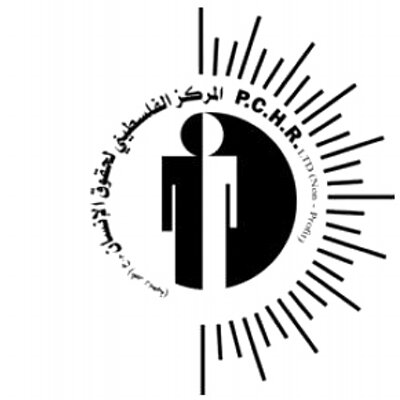
Date: 14 December 2020
Time: 08:00 GMT
The Palestinian Centre for Human Rights follows with concern the humanitarian conditions of Gaza Strip’s workers under the government-imposed restriction to curb the spread of the coronavirus, including nighttime curfew and weekend shutdowns that stated last Saturday, 11 December 2020. PCHR warns of the catastrophic deterioration in the living conditions of thousands of workers who lack the minimum standards for dignified life due to the shutdown or reduced work in the facilities they work in. PCHR demands the Palestinian government and the Gaza authorities to support these workers without political or geographical discrimination.
According to PCHR’s follow-up, at least 160,000 workers, mostly daily workers who earned a living through daily work in institutions and facilities that had shutdown or reduced operations due to the Covid-19 pandemic, mainly factories, shops, schools, universities and daycares, as well as, wedding halls, restaurants, coffee shops, popular markers and in transportation. These workers have lost their sources of income and their means to support their families’ minimum needs. Some workers were let go or their hours/workdays were reduced, others had pay cuts inflicted on their already low wages; 80% received wages below the minimum wage decided in the Council of Ministers decision No. 11 of 2012, which set the minimum wages at 1,450ILS/month, and minimum wages for daily workers, especially those working on ad-hoc basis, to 64 ILS/day.
PCHR has monitored the government interventions to support workers who lost their sources of income. The Palestinian government, through the “Waqfat Ezz” Fund – Ministry of Social Development, has released a one-time relief payment of USD 150-200 to 5,000 workers from the Gaza Strip.[1] The Gaza authorities, mainly the Ministry of Labor, released a one-time relief payment of USD 100 for 81,850 workers affected by the pandemic in four installments. According to Eng. Maher Abu-Raya, Director General of Employment at the Ministry of Labor, said that the Gaza government’s relief payment was funded by the Gaza-Ministry of Finance, the Qatari fund and the International Committee of the Red Cross.
The government action to relieve the pandemic’s negative impact on the Gaza Strip’s workers during the state of emergency do not meet their minimum needs and did not cover all affected workers. Also, the fact that these were one-time payments does not support workers’ livelihoods, especially that they have been out of work for a lengthy period. Even more, many workers and union members complained that they were deprived of any government aid and it was not distributed on a clear criterion.
Even before the curfew was imposed, which is deemed necessary for the sake of public safety, the people of the Gaza Strip suffered from harsh living conditions with high rates of unemployment and poverty due to the Israeli-imposed closure on the Gaza Strip for the last 14 years and the accompanying restrictions on the movement of persons and goods, the ban on exports, targeted attacks on the industrial and production sectors and destroying 70% of both sectors during past Israeli offensives on the Gaza Strip.
All of the above was a main contributing factor to the increased unemployment rate in the Gaza Strip to 45% (i.e. 217,100 unemployed workers) and resulted in a 53% poverty rate among its population. Meanwhile, more than 62.2% of the Gaza population suffer from food insecurity according to the UN Office for Coordination of Humanitarian Affairs (OCHA).
In light of its fear of deteriorating living conditions for the Gaza Strip workers, especially per-day workers, in the case of a prolonged emergency situation, PCHR:
- Believes that the Israeli-imposed closure on the Gaza Strip has led to this catastrophic situation, and the international community bears responsibility for the continuation of the closure for 14 years, due to its utter failure to take effective measures to end the closure, which encouraged Israel to act as a State above the law and to perpetrate further violations of international human rights law and humanitarian law;
- Calls on the Palestinian government to create clear mechanisms for the relief of the Gaza Strip workers and expand the scope of support for workers affected by the pandemic, as the support should include all workers in all sectors, especially daily workers. Thus, we can ensure that workers enjoy a decent standard of living, and are able to provide their basic needs;
- Calls upon the Palestinian government to find alternatives and solutions to help the affected workers; prominently the government should apply the Labor Law as a legal umbrella to preserve workers’ rights during these compelling circumstances; also, governmental support should be given to affected companies and institutions to be able to fulfill their duties towards their employees; and
- Calls upon the Palestinian government to follow up on the commitment of private companies and institutions to paying workers’ wages during the lockdown, as stipulated in Article 38 of the Labor Law, which remains in force during the declared state of emergency, while underlining the importance of government support to affected companies and institutions to be able to fulfill their duties to their employees.
[1] Gaza – Palestine General Federation of Trade Unions data
Filed under: Palestine, Palestinians, War on Gaza | Tagged: COVID-19 pandemic, Gaza, PCHR, Siege on Gaza |
 RSS Feed
RSS Feed















 December 16th, 2020
December 16th, 2020  Awake Goy
Awake Goy  Posted in
Posted in  Tags:
Tags: 













